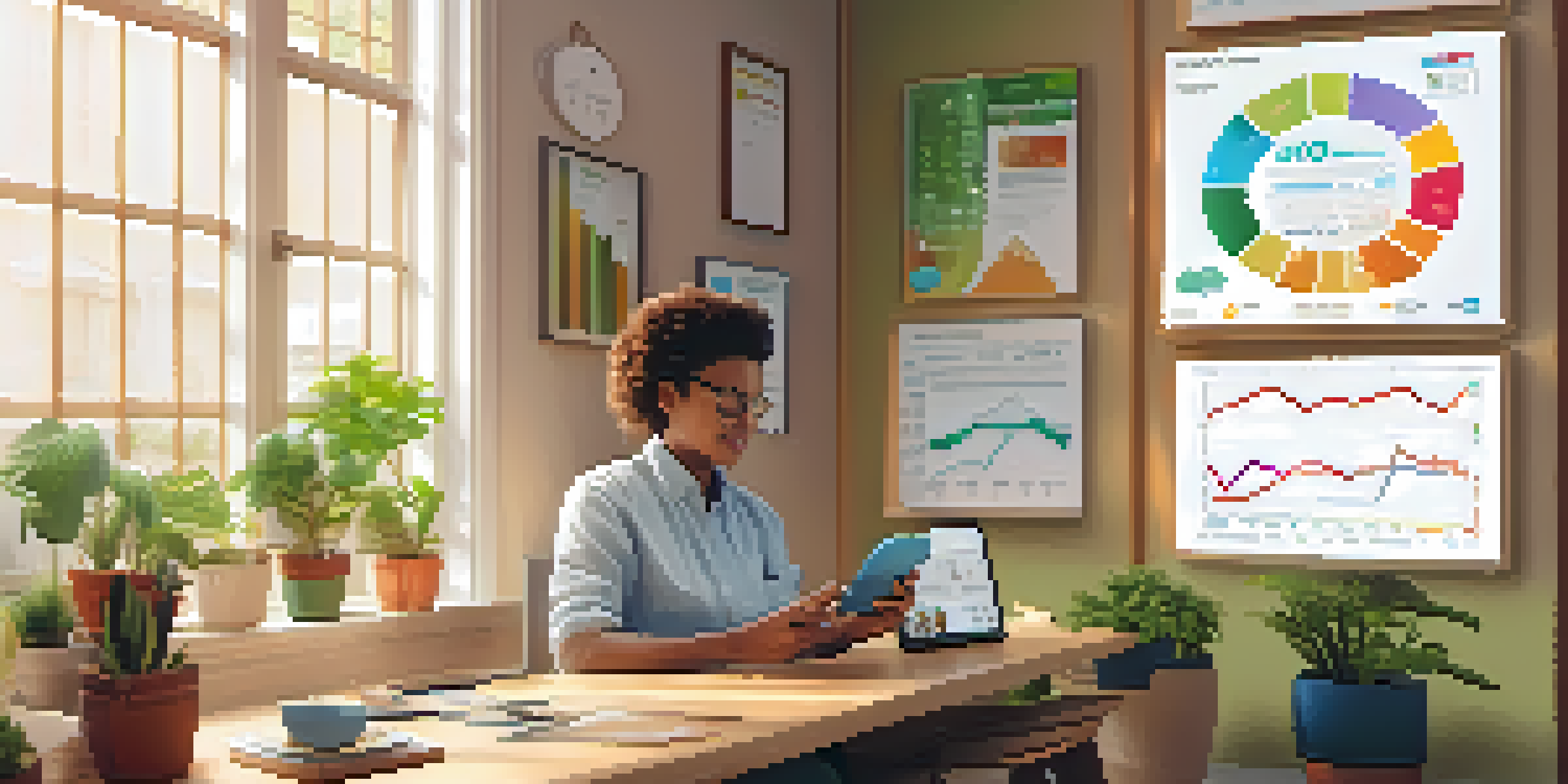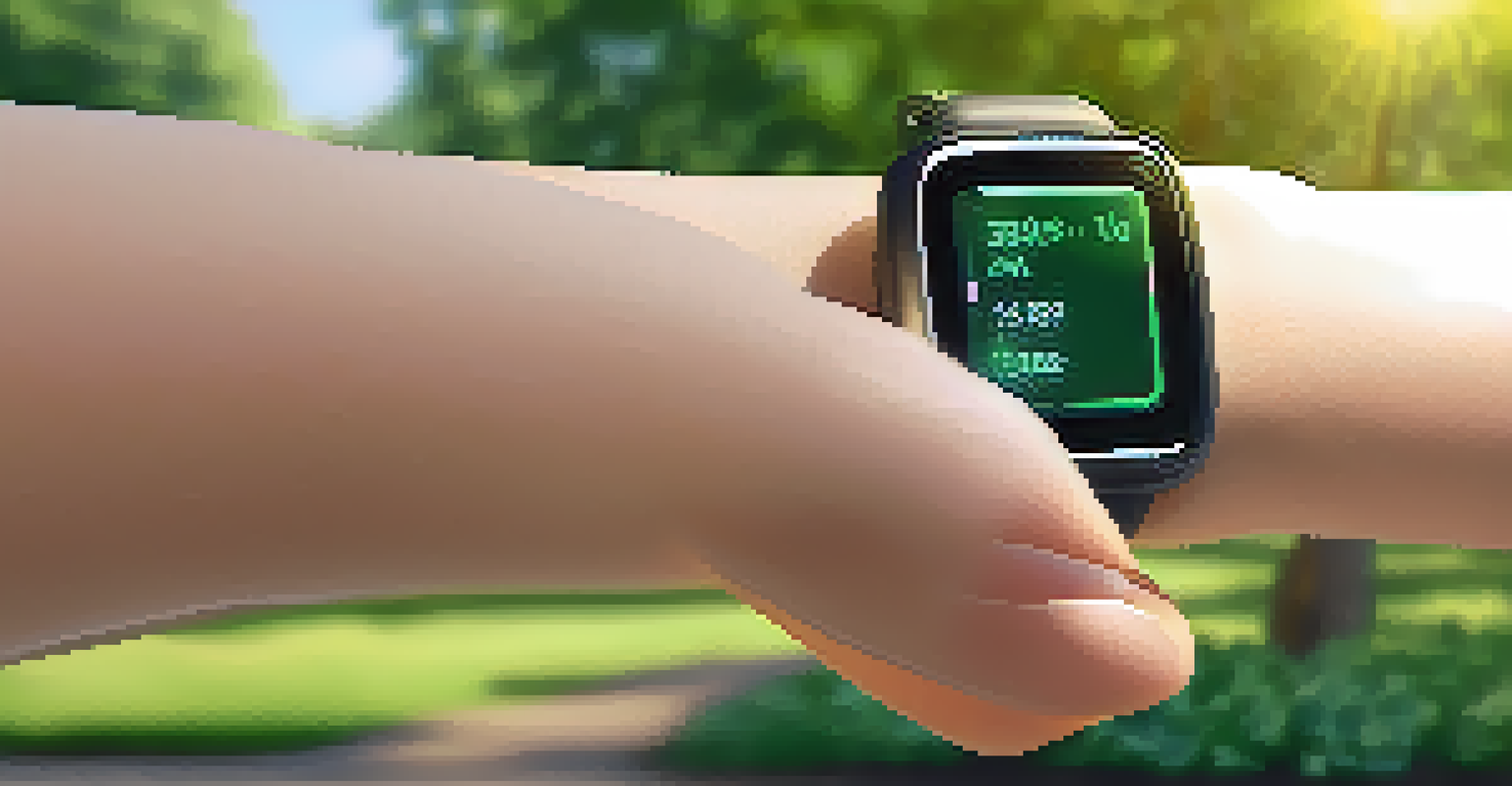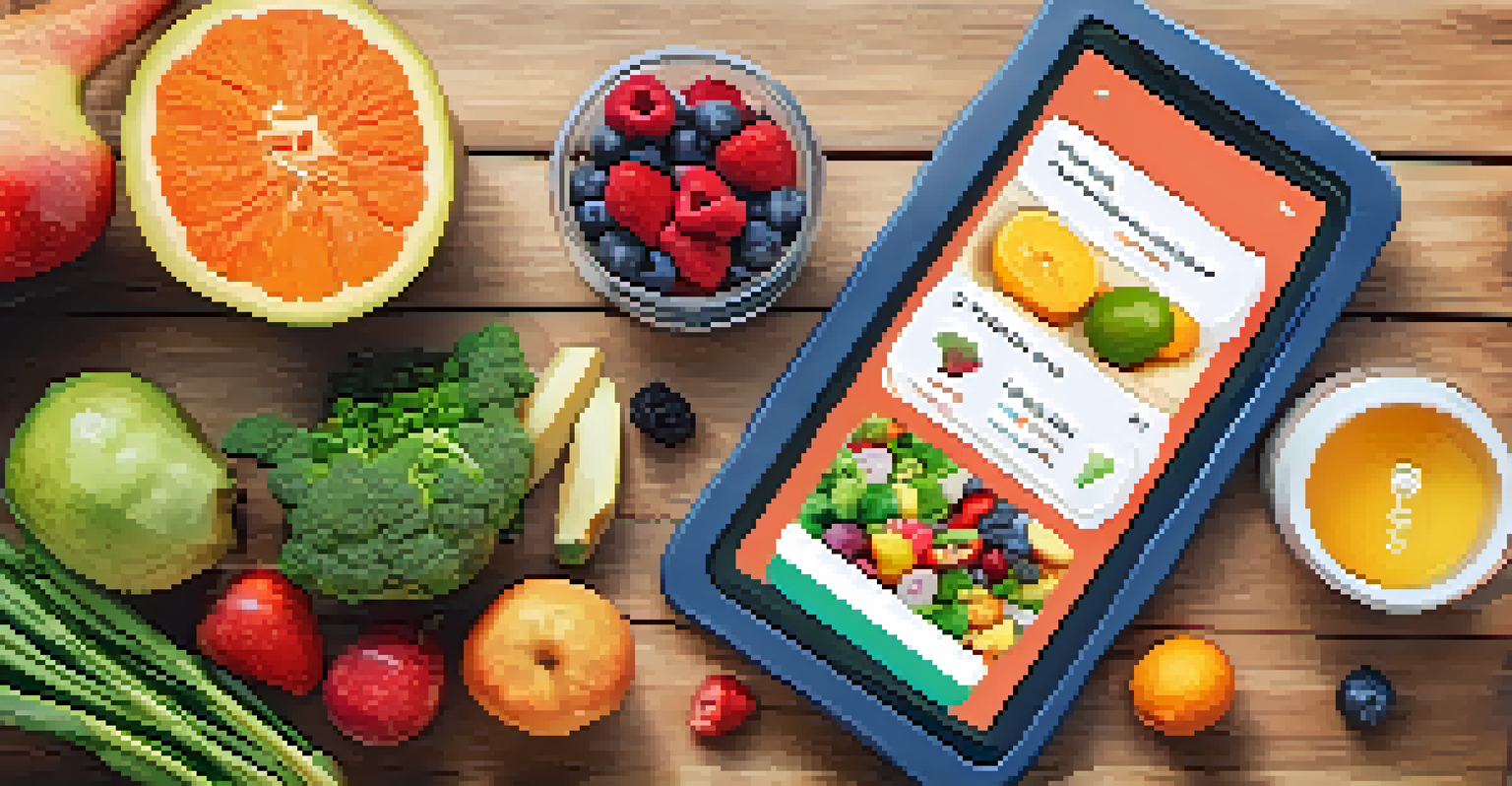Mobile Health Apps: A Guide to Personal Health Tracking

What Are Mobile Health Apps and Their Benefits?
Mobile health apps are digital tools designed to help users manage and monitor their health. These applications can track everything from physical activity to dietary habits, as well as vital signs like heart rate and blood pressure. The convenience of having health tracking at your fingertips empowers individuals to take charge of their wellness journey.
Health is a state of body. Wellness is a state of being.
One significant benefit is the ability to set personalized health goals. For instance, if you aim to lose weight, an app can help you log your meals and track your exercise, making it easier to stay on course. Moreover, many of these apps offer reminders and notifications to keep you engaged and motivated.
Another advantage is the access to a wealth of health information. With a few taps, you can learn about nutrition, exercise routines, and even mental health resources, making it a one-stop shop for your health needs. This accessibility contributes to informed decision-making, ultimately leading to better health outcomes.
Types of Mobile Health Apps Available
Mobile health apps come in various forms, catering to different aspects of health and wellness. Some popular categories include fitness trackers, diet and nutrition apps, mental health support, and chronic disease management tools. Each type serves a unique purpose, allowing users to focus on specific health goals.

Fitness trackers, for example, monitor physical activity and can sync with wearable devices like smartwatches. They often feature challenges or social components that encourage users to stay active and connect with friends. On the other hand, nutrition apps help users log their food intake and suggest healthier alternatives, making it easier to maintain a balanced diet.
Benefits of Mobile Health Apps
Mobile health apps empower users to manage their health through personalized goals, accessible information, and reminders.
Mental health apps have gained popularity, offering meditation guides, mood tracking, and therapy resources. These tools are particularly helpful in today’s fast-paced world, where stress and anxiety can take a toll on overall well-being. By addressing various health dimensions, mobile health apps provide comprehensive support for users.
Key Features to Look for in Health Apps
When choosing a mobile health app, it's essential to consider its features to ensure it meets your needs. Look for apps that offer user-friendly interfaces, as a complicated layout can be discouraging. A simple, intuitive design encourages consistent use, which is crucial for tracking your health effectively.
The greatest wealth is health.
Another important feature is customization options. The best apps allow users to tailor their experience based on personal goals and preferences. For example, if you’re focusing on hydration, an app that sends reminders to drink water throughout the day can be invaluable.
Security and data privacy are also critical factors. Ensure the app you choose protects your personal information and complies with relevant regulations. Knowing your data is secure allows you to use the app confidently, knowing your health information is safe.
Integrating Mobile Health Apps into Daily Life
Integrating a mobile health app into your daily routine can enhance its effectiveness. Start by setting aside specific times to log your data, whether it's tracking meals or logging workouts. Creating a habit around using the app can make it feel like a natural part of your day.
Additionally, consider using the app's features to set reminders and alerts. These notifications can help keep you accountable and ensure you stay on track with your health goals. For instance, a reminder to check your step count at the end of the day can prompt you to take those extra steps needed to meet your target.
Types of Health Apps Available
There are various mobile health apps designed for fitness tracking, nutrition, mental health support, and chronic disease management.
Don't forget to review your progress regularly. Many apps offer insights and analytics that provide a clear picture of your health over time. Reflecting on your achievements can motivate you to continue your healthy habits and make necessary adjustments along the way.
Challenges of Using Mobile Health Apps
While mobile health apps offer numerous benefits, they also come with certain challenges. One common issue is the overwhelming amount of data users can collect. Without proper guidance, it can be easy to become bogged down by numbers rather than focusing on meaningful progress.
Another challenge is the potential for inaccurate data. Not all apps are created equal, and some may not accurately track metrics like heart rate or calorie intake. It’s essential to choose reputable apps and, when possible, cross-check their data with other reliable sources.
Lastly, there's the risk of dependency on technology for health management. While apps can be helpful tools, they shouldn't replace professional medical advice or treatment. It's crucial to maintain a balanced approach, using these apps as a supplement to traditional health care rather than a substitute.
Real-Life Success Stories with Health Apps
Many individuals have transformed their health journeys through mobile health apps. For instance, a woman named Sarah used a fitness tracking app to lose over 30 pounds in six months. By logging her meals and exercise, she gained a better understanding of her habits and was able to make informed choices.
Another inspiring example is a man who managed his diabetes more effectively with a blood sugar tracking app. By regularly inputting his readings, he could identify patterns and make necessary adjustments to his medication and diet, improving his overall health.
Future of Health Apps
Advancements in AI and telehealth integration promise to enhance the personalization and effectiveness of mobile health apps.
These success stories highlight the potential of mobile health apps to facilitate real change. When users actively engage with the app's features and stay committed to their goals, they can achieve remarkable results and improve their quality of life.
The Future of Mobile Health Apps
The future of mobile health apps looks promising, with advancements in technology continually enhancing their potential. As artificial intelligence (AI) and machine learning evolve, apps can provide more personalized recommendations and insights based on users’ data. This technology could lead to even better health outcomes, tailored specifically to individual needs.
Additionally, the integration of telehealth features is on the rise, allowing users to connect with healthcare professionals directly through the app. This capability could streamline communication, making it easier for patients to receive timely advice and support without needing to visit a clinic.

As awareness of health and wellness continues to grow, we can expect more people to adopt mobile health apps. The ongoing development of these tools will likely continue to empower individuals to take charge of their health, leading to a healthier society overall.